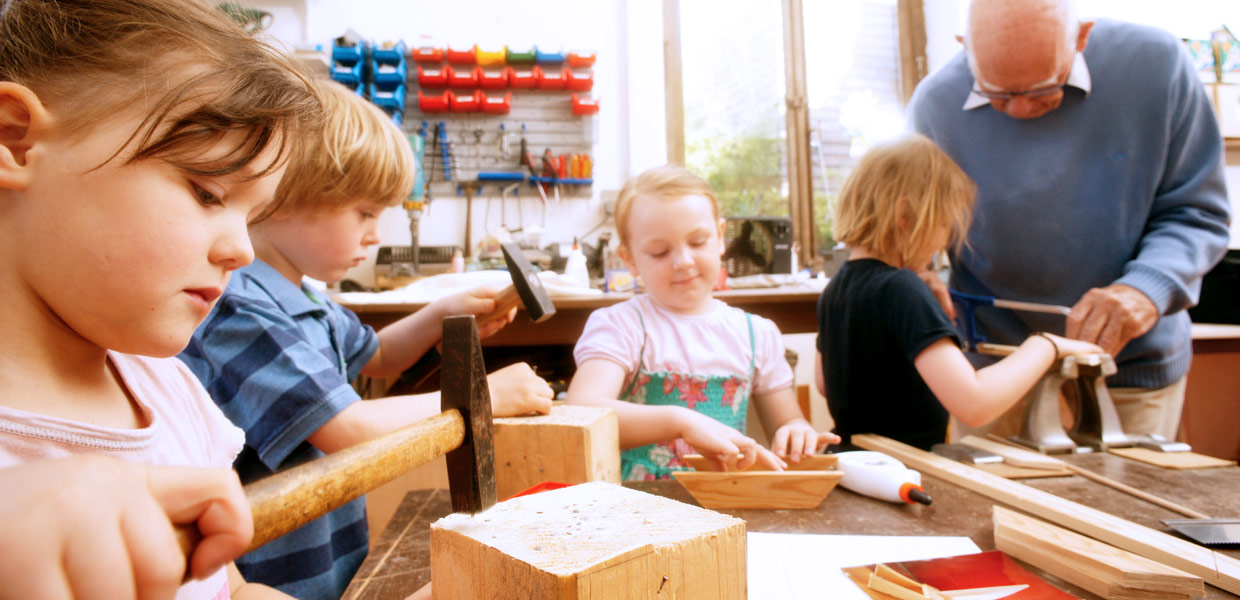Social services in Germany are provided by a wide range of non-profit organizations, companies, volunteers and families. These services address youth education, support of people with disabilities, aid to refugees or the care for the elderly.
Cooperation between the providers involved, however, is hard to find and is becoming ever more difficult. The reasons contributing to this problem include the increase of municipal services, the fact that relatives often live far away, long-term volunteering is less likely and the increasing competition for resources between providers makes it more difficult to plan and act together.
Approaches of “Local Synergies”: enhance knowledge, test models for collaboration, encourage exchange
With our project “Local Synergies” we seek to test and establish new models for coproduction and collective impact by partnering with non-profit organisations and municipalities in order to find solutions for pressing societal challenges in our cities and communities. To achieve this, we work on three levels:
I. Enhance knowledge and understanding
We want to explore existing models of collaboration between the state, civil society and recipients of social services by researching and collecting appropriate case studies. Relevant questions are: Which models of collaboration work well? Which challenges and obstacles do they face? What can we learn from each other in Germany and abroad?
II. Establish new models for collaboration
We test and establish new models for collaboration and participation together with municipalities and non-profit organizations. The results will be available publicly. Starting in 2017, we will develop and offer training programmes incorporating these results as well.
